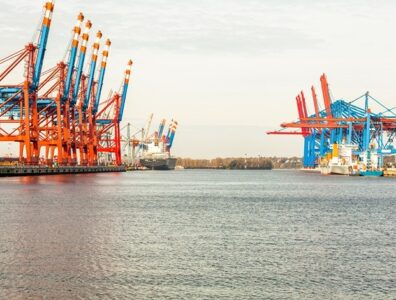
Naftogaz has commissioned eleven gas production wells in 2023 to meet the domestic demand in Ukraine, the state-owned energy company announced on Monday.
All wells…
READ MORE
Oil reserves107.8 billion barrels
Oil production10.93 million bopd
Gas reserves37.4 tcm
Gas production701.7 bcm
Russia’s oil and gas industry is one of the nation’s largest industrial focuses. The country is now one of the top three hydrocarbons producers worldwide and has the world’s second-largest natural gas reserves. The country is also one of the top five LNG exporters. The oil and gas industry plays a huge part in the country’s economy, traditionally making up around 45% of the federal budget. With its landscape consisting mostly of ageing oil and gasfields, the northern nation is funnelling its efforts to further develop its brownfield assets and raise exploration efforts in its unconventional greenfield options previously not viable due to technological restrictions.
While deposits exist in many areas throughout the country, producing assets are focused mainly in western and eastern Siberia. The Arctic has become increasingly important for hydrocarbons production, particularly gas. Most of Russia’s E&P efforts come from domestic firms. After a long period of mergers, the largest players in the market are Rosneft, Lukoil, Gazprom and Novatek. Following the collapse of the Soviet Union, the nation initially privatised its oil industry, but has since reverted to state control. Russia is a member of OPEC+.
The nation has extensive midstream capabilities for oil and gas, including the world’s longest crude pipeline – the Druzhba pipeline – that carries oil towards the European market. Conventionally around 60% of the country’s oil production was transported to OECD nations in Europe and fed around 20% of Europe’s refinery throughput, though recent conflicts have changed the paradigm. Europe’s reliance on Russian gas had grown over the last decade due to production drops in European countries. Before the war with Ukraine a variety of routes made it possible for Russia to feed European gas consumption without being reliant on transport directly through a single surrounding nation, namely the Nordstream, Blue Stream and Turkstream pipelines. But since the war with Ukraine broke out Russia has had to look to other markets to maintain its exports in the face of economic sanctions.
Russia has made large efforts to diversify its export markets towards Asian nations, including investment in pipelines that pump hydrocarbons directly to China, the latter of which has long remained the largest single buyer of Russian oil.

Maersk is the latest in a slew of global shipping companies to reroute shipments passing through the Red Sea and the Suez Canal…
READ MORE
Abdulmuin Alyousef, CEO of Completion Energy, talks to The Energy Year about the company’s strategy to export technologies…
READ MORE
Atif Arikat, managing director of Al Ghaith Energy, talks to The Energy Year about how energy market dynamics are evolving in…
READ MORE
<a href="https://staging.staging.theenergyyear.com/companies-institutions/opec/”>OPEC+ members have agreed to oil…
READ MORE
Suriname’s oil and gas sector is taking off at a dynamic time for the global energy industry, with a worldwide energy…
READ MORE
The European Commission has affirmed the EU can end its reliance on gas from Russia by 2027, highlighting progress in a report…
READ MORE
Saudi Arabia and Russia have both decided to extend their voluntary oil cuts to the end of 2023, Reuters reported on Tuesday.
…








Naftogaz has commissioned eleven gas production wells in 2023 to meet the domestic demand in Ukraine, the state-owned energy company announced on Monday.
All wells…
READ MORE
Britain and the Netherlands plan to build a 1.8-GW power link connecting the Dutch province of Zuid-Holland to the cities of Birmingham and Manchester in the UK,…
READ MORE
The Russian government has approved the sale of Shell’s stake in the Sakhalin-2 LNG project to Russian independent Novatek for USD 1.16 billion, Reuters reported on…
READ MOREWHOSE PLATFORM IS THIS?
ASK US